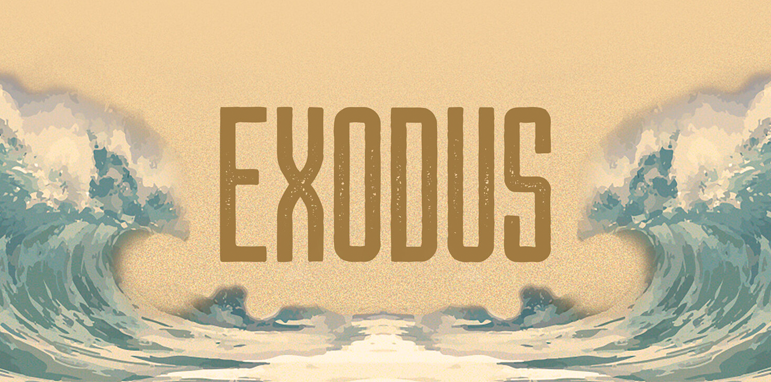The book of Exodus is the story of God rescuing the children of Israel from Egypt and forging a special relationship with them. Exodus is the second book of the Pentateuch (the first five books of the Bible and also commonly referred to as the five books of Moses), and it’s where we find the stories of the Ten Plagues, the first Passover, the parting of the Red Sea, and the Ten Commandments.
The book gets its name from the nation of Israel’s mass emigration from Egypt, but that’s only the first part of the story. This is the book in which God first lays out his expectations for the people of Israel—we know these expectations as the 10 Commandments.\
IMPORTANT CHARACTERS OF EXODUS
God (Yahweh)—the creator of heaven and earth and the divine being who chooses the nation of Israel to represent him on earth. God goes to war against the gods of Egypt, frees Israel from their tyranny, and then makes a covenant with the new nation. While the rest of the nations serve lesser gods, Yahweh selects the descendants of Abraham, Isaac, and Jacob as the people group that will serve him and him alone.
Moses—the greatest of the Old Testament prophets who serves as a go-between for God and the other humans in the book of Exodus. Moses negotiates with Pharaoh for Israel’s freedom, passes God’s laws on to the people of Israel, and even pleads for mercy on Israel’s behalf when they anger God.
Aaron—Moses’ brother and right hand. Aaron assists Moses as a spokesperson, and eventually is made the high priest of the nation of Israel.
Pharaoh—the chief antagonist in the Exodus story. Pharaoh enslaves and oppresses the people of Israel. Pharaoh is worshiped as part of the Egyptian pantheon: a lesser god laying an illegitimate claim to God’s people. God defeats Pharaoh and the gods of Egypt by sending a series of ten devastating plagues, and finally destroying Pharaoh’s army in the Red Sea.
KEY THEMES IN EXODUS
Exodus has three main parts: “liberation” (Jews freed from Egypt), “covenant” (God gives them the Ten Commandments), and “tabernacle” (God provides blueprints for a temple in His honor).
As the Hebrews prepare to leave the land of their enslavement (Chapter 13 and 14), they come to the Red Sea. Once again, they see the hand of God operating in nature as they pass dryshod through the sea. Paradoxically, the body of water which saves the Hebrews and guarantees their freedom is the same body which destroys the Egyptians. No credit is given to Israel for cleverness, resourcefulness, or military acumen; they are the recipients of divine favor, pure and simple.
Having proved his love to Israel, Yahweh is now ready to ask Israel for proof of their love. The Lord gives Moses a set of commandments not only to test Israel’s fidelity, but also as a gift. By following this law, happiness will be theirs. If the people have sufficiently appreciated their desert experience, they will take this law to themselves as a very dear gift from a caring and loving God. And so it is that they bind themselves and their descendants to this covenant.
The rest of Exodus is concerned with the priestly nature of this special people, whose very lives are consecrated to Yahweh. The Lord of the universe, present everywhere, chooses to dwell among the Hebrews in a most intimate fashion. Therefore, great attention must be given to the symbols of his abiding presence: the ark of the covenant, the meeting tent, the liturgy, and the priests. These are all ways that God reveals himself to the Israelites. These opportunities to encounter divinity are not petty fetishes but important to the maintenance of the sense of the presence of God once so powerfully experienced in a foreign land.
From: overviewbible.com, uscatholic.org


